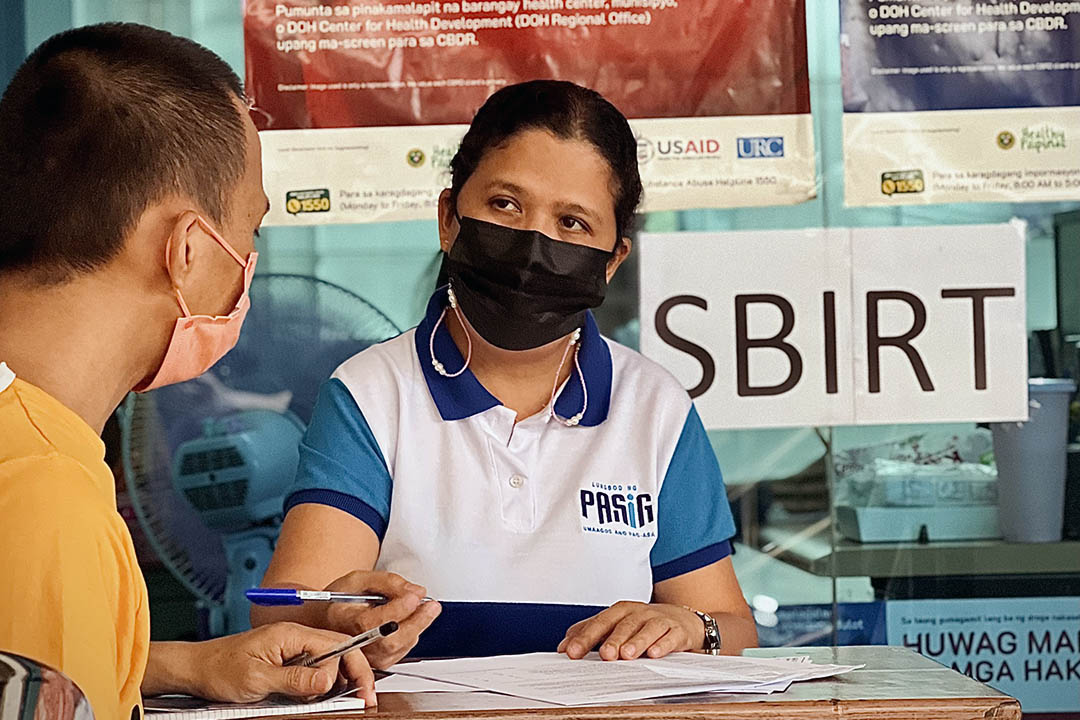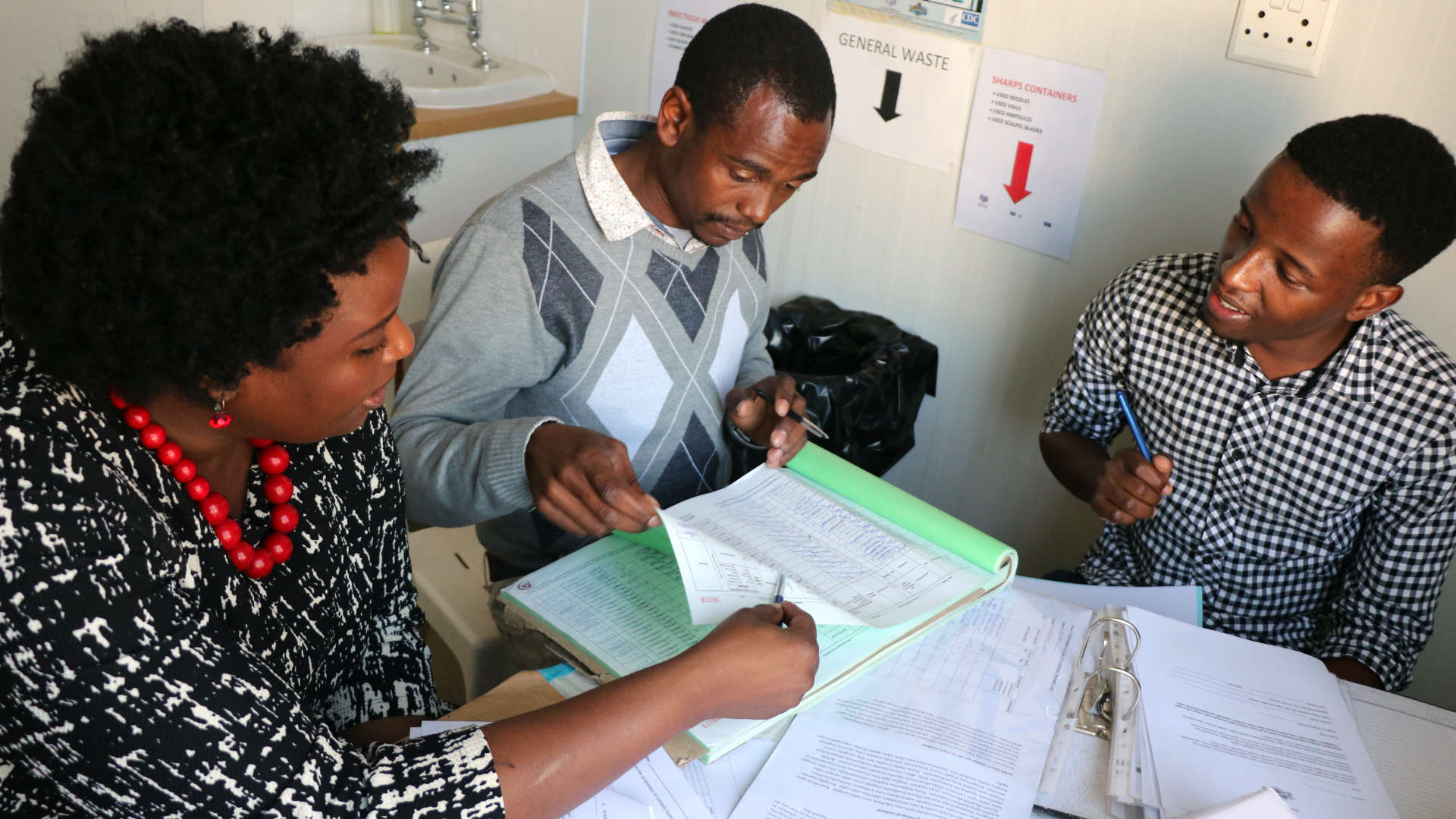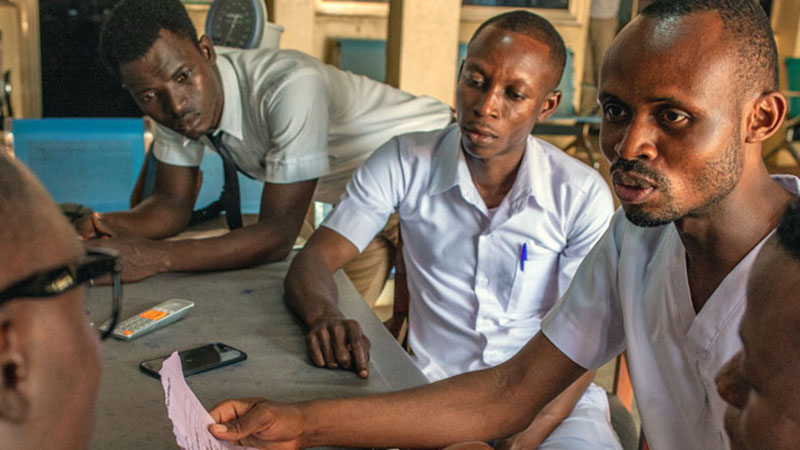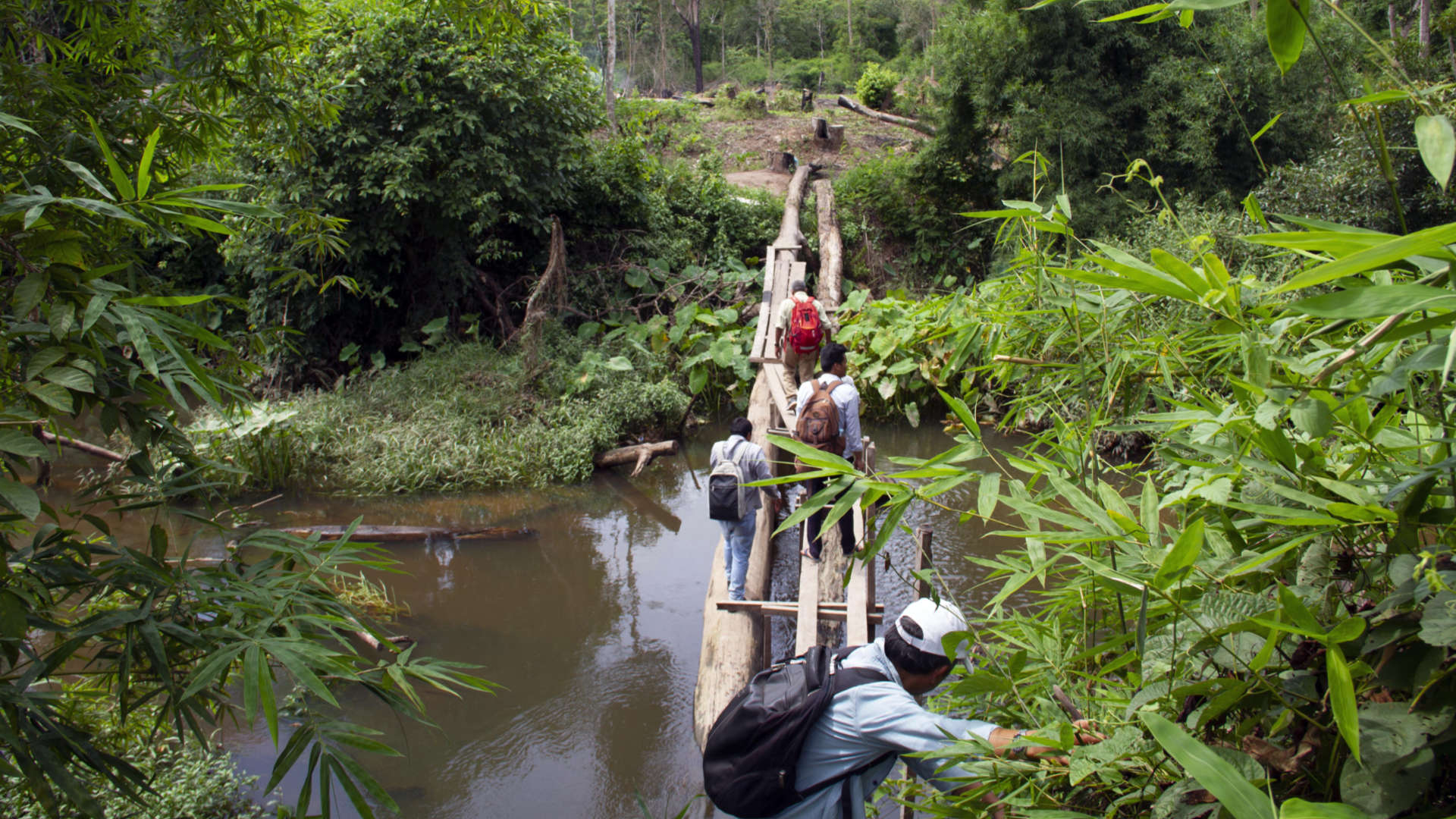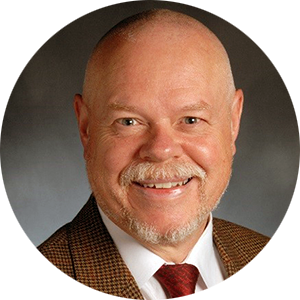
Eckhard Kleinau
Director, Research and Evaluation

Laura McGough
Senior Technical Advisor, Center for Technical Excellence
The recently launched International Council of Nurses Caring with Courage global series produced by BBC StoryWorks Commercial Productions, highlights the impact of nurses around the world. One film in the series, “A Nurse’s Calling,” highlights Nassali Rose Mugerwa, affectionately “Nurse Rose,” who leads TB control efforts in her community in Uganda with support from the USAID Defeat TB Activity (Defeat TB).
Shadowing Nurse Rose for a day in her life underscores the indispensable role of frontline health workers in the provision of essential health care. URC, on behalf of the U.S. Government, works closely with country partners to support nurses like Rose by strengthening their skills, and ensuring that they have the tools necessary to do their work, and a supportive, well-functioning health system environment to work in.
However, the needs of health workers go far beyond developing technical skills and working in supportive and effective health systems – especially during times of crisis. Emergencies such as the COVID-19 pandemic, violent conflict, and natural disasters put frontline health workers under tremendous stress, which requires further efforts to build their resilience. Only a resilient health workforce can continue to care for people when the need for care increases and care is more difficult to provide.
How do we protect those who protect so many from death and disease?
Going the Extra Mile to Protect Health Workers
URC employs strategies across our projects to support and protect health workers:
Respecting and valuing frontline health workers and their rights: URC supports health workers’ right to decent work as advocated by the World Health Organization and the International Labor Organization. Health workers are often underpaid and undervalued, leading to low motivation and excessive staff turnover. URC works with local partners to strengthen country health systems to promote better wages and benefits for health workers.
Several of our programs work in areas impacted by crises including COVID-19 and violent conflict. In those contexts, URC places high priority on working with local authorities and key actors to provide a safe work environment and protecting health workers from harm.
In addition, female health workers – who account for approximately 70% of the health workforce globally – are underrepresented in management positions, face a wage gap of 28%, and sometimes face harassment on the job. We work to address gender inequity in salary and support team-based work environments that empower women, which translates into better quality of care. Health workers who feel valued and respected in the workplace are better able to provide respectful, quality care to clients.
Providing health workers with essential tools: drugs, equipment, and job aids: Frontline health workers often lack up-to-date skills or even the most essential supplies to perform their duties and deliver quality care. Much of URC’s work to build quality health systems across a range of projects and health areas focuses on improving supply chains and management of the health workforce by strengthening logistics, supervision, and information systems and updating policies and procedures at the national level.
In our infectious disease programs, we work with local software developers to provide health workers with innovative digital tools such as mobile apps for tracking disease treatment adherence, defaulter tracing, and vaccination coverage. URC supports local partners to implement infection prevention and control measures, procure personal protective equipment, and support COVID-19 vaccination efforts. In Uganda, health workers received the COVID-19 vaccine as soon as it became available thanks to URC’s joint efforts with local partners.
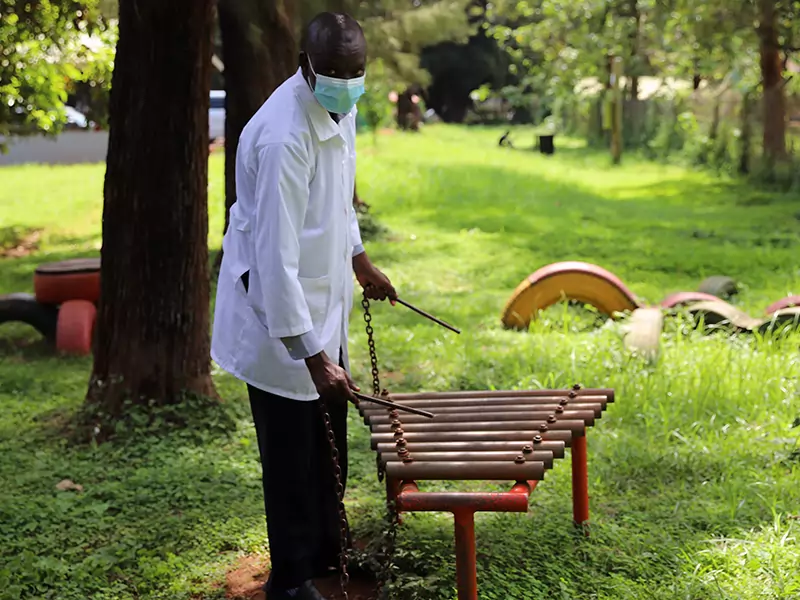
Building the resilience of the health workforce: The demands on health workers during a pandemic such as COVID-19 or during violent conflict increase manyfold, affecting their mental well-being, often giving rise to anxiety and depression. Yet few local resources and networks for psychosocial support exist to help health workers cope.
Through the Health Evaluation and Applied Research Development (HEARD) and Human Resources for Health (HRH2030) projects, URC supports the mental well-being of health workers by researching approaches most effective in the local context. For example, URC successfully tested a mental health chat app called Vitalk in Malawi, where there are only a handful of certified psychologists available in the country. As a member of the Resilience Collaborative, led by Johnson & Johnson, URC explores and shares new tools and methods globally to help build health workers’ resilience and ability to cope – both with everyday stressors, as well as with trauma and crises.
Optimizing use of the health workforce: URC’s programs work hard to reduce the inefficient use of the existing health workforce in countries with significant health disparities and limited access to care. In Mali, URC’s work under USAID Keneya Nieta expands health care delivery from facilities into communities. We developed tools that help optimize the distribution of health workers where they are needed most, including the human resources for health optimization tool for primary health care (HOT4PHC).
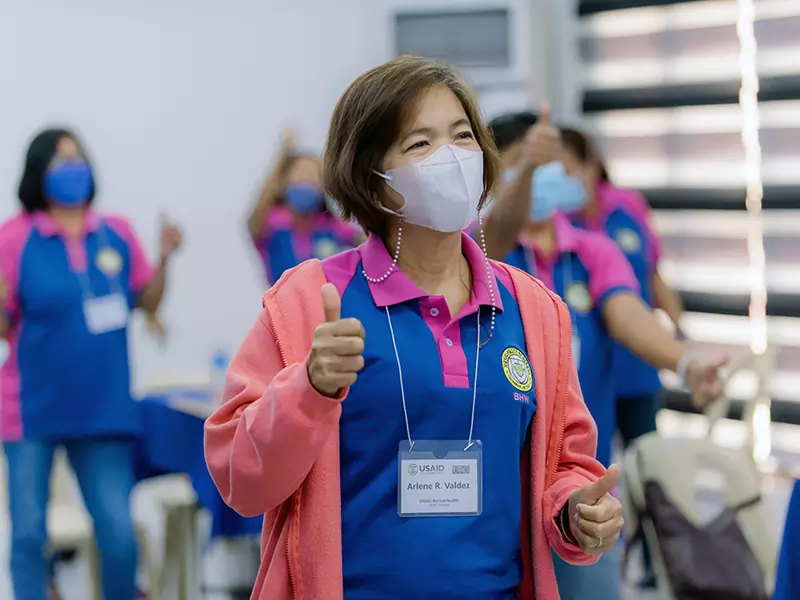
A Resilient Health Workforce Continues to Care
Against staggering odds, health workers have continued to provide essential health care services despite the strains brought by COVID-19 and other stressors.
As part of a URC-driven research study about supportive supervision in the Philippines and the testing of a mental health chat app in Malawi, we asked how the pandemic impacted health workers’ ability to provide care and clients’ access to care.
While the pandemic increased psychological strain on health workers and made it more difficult for them to provide care, health workers like Nurse Rose go above and beyond continue to provide patients essential services. Having access to resources and tools go a long way to improving the mental well-being and resilience of those working on the frontlines of health care.
In fact, promoting resilience, good mental health practices, and equity for health care providers is key to ensuring quality health service delivery.
